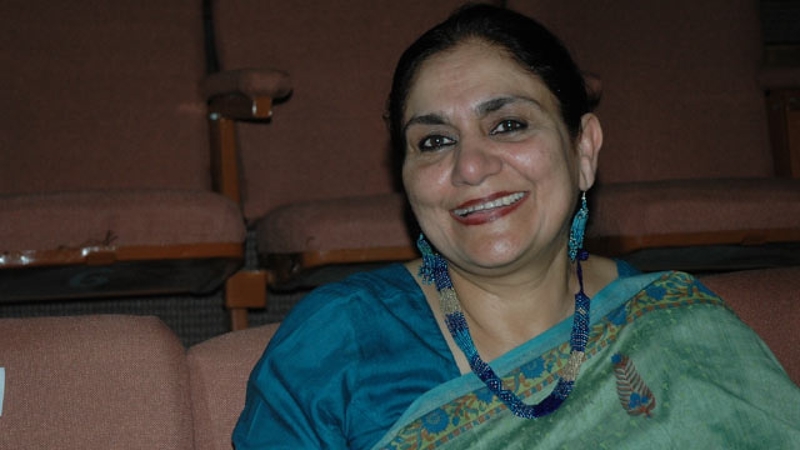
This group of committed artists earned laurels in and outside Pakistan but has was always been the target of State repression. She and her group used to visit India often at the invitation of democratic-secular organizations enjoying immense rapport with the Indian audiences. She has been rightly described as a ‘cultural bridge’ between Pakistan and India. The first play which Ajoka decided to perform was Badal SircarJuloos. It was the outcome of a theatre workshop which Badal da conducted at Lahore. Ajoka was a permanent fixture in the major theatre festivals of India. Its performances were not only a theatrical delight but also inspired you to think and act.
The other important plays which Ajoka under her leadership selected for performances manifested the deep commitment of her and her group towards the critical issues which feudal/tribal society and totalitarian State had forsaken. The Ajoka repertoire of plays included,Bulha(on Sufi Bulleh Shah), Kaun Hai Yeh Gustakh(on the life and times of Saadat Hasan Manto), Mera Rang De Basanti Chola(on Bhagat Singh), Dukh Darya(on the plight of the Kashmiri families divided by the border), Toba Tek Singh (on Partition of India, Hotel Mohenjodaro(on rise of religious bigotry in Pakistan), Itt (on the miserable condition of brick-kiln labour who are mostly Christians and lower Caste Muslims) and jhalli kitthe Jawe (on the plight of Pakistani wives whose husbands go to Gulf and abandoned them). Most of these plays were co-authored and adapted by Shahid Nadeem.
Kewal Dhaliwal, prominent theatre personality from Punjab, based in Amritsar, mourning her death said that, he had lost a dear sister, a co-performer and a great Punjabi cultural icon. According to Professor Ishtiaq Ahmed (based in Sweden but originally from Lahore and a great chronicler of politics and culture of Punjab) who had been following her work said “she was a true cosmopolitan who made friends wherever she went. Ajoka theatre earned goodwill from conscientious people in both Pakistan and India and wherever they went abroad”.
It is sad that within three years Pakistan lost three great fighters for a liberal and democratic Pakistan. Earlier Asma Jahangir, renowned lawyer who spent herlife fighting for the rights of minorities, women and poor, died in February 2018 and Sabeen Mahmud, a relentless fighter for repressed tribes in Pakistan was murdered in Karachi in April 2015. Those who believe Pakistan is a gone case and belittle its civil society must take note of the fact that all of them were women, who were in the forefront of resistance to the State which chose to serve the interests of feudal, totalitarian and religious bigots.
Shamsul Islam is a retired Professor of University of Delhi.Email: notoinjustice@gmail.com
